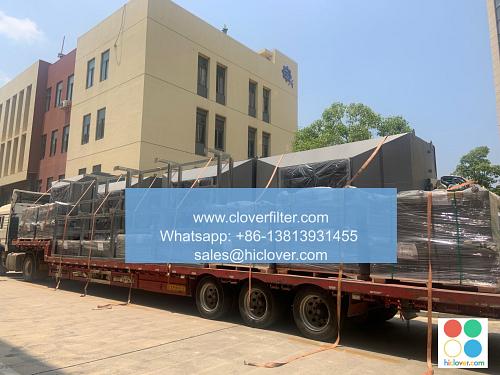Advanced Materials for Enhanced Air Filter Efficiency

The increasing awareness of air pollution and its detrimental effects on human health has led to a growing demand for efficient air filtration systems. Traditional air filters have been widely used, but they often fall short in terms of efficiency and effectiveness. To address this issue, researchers have been exploring the development of advanced materials that can significantly enhance air filter efficiency. These materials have the potential to revolutionize the field of air filtration, enabling the removal of even the smallest particles and pollutants from the air.
Nanofibers and Nanomaterials for Air Filtration
One of the key areas of research in advanced materials for air filtration is the development of nanofibers and nanomaterials. These materials have unique properties, such as high surface areas and tailored pore sizes, that make them ideal for capturing tiny particles and pollutants. Nanofiber-based air filters have been shown to have enhanced efficiency and longevity compared to traditional filters, making them an attractive option for various applications, including indoor air purification, industrial air filtration, and medical air filtration.
Graphene and 2D Materials for Air Filtration
Another area of research is the use of graphene and other 2D materials in air filtration. These materials have exceptional mechanical strength, thermal conductivity, and chemical stability, making them suitable for high-performance air filters. Graphene-based air filters have been shown to have enhanced capture efficiency and airflow resistance compared to traditional filters, making them an attractive option for various applications, including vehicle air filtration, aerospace air filtration, and industrial air purification.
Self-Cleaning and Antimicrobial Air Filters
The development of self-cleaning and antimicrobial air filters is another area of research that has gained significant attention in recent years. These filters incorporate advanced materials with photocatalytic or antimicrobial properties, enabling them to degrade or kill microorganisms and other pollutants. Self-cleaning air filters have the potential to reduce maintenance costs and enhance filter lifespan, making them an attractive option for various applications, including commercial air filtration, industrial air purification, and medical air filtration.
Application Areas and Future Directions
The advanced materials discussed in this article have a wide range of potential applications, including:
* Indoor air purification
* Industrial air filtration
* Medical air filtration
* Vehicle air filtration
* Aerospace air filtration
* Commercial air filtration
Future research directions include the development of hybrid materials that combine the benefits of different advanced materials, such as nanofibers and graphene. Additionally, the integration of artificial intelligence and machine learning algorithms with advanced air filtration systems has the potential to optimize filter performance and enable real-time monitoring of air quality.
In conclusion, the development of advanced materials for enhanced air filter efficiency has the potential to revolutionize the field of air filtration. These materials have unique properties that enable them to capture tiny particles and pollutants, making them ideal for various applications. As research continues to advance, we can expect to see the development of even more efficient and effective air filtration systems that incorporate these advanced materials. It looks like you’re ready to start a conversation, but you haven’t given me a specific topic or question to respond to. I’m here to help with anything you’d like to talk about. Would you like to:
* Ask a question on a particular subject?
* Discuss a current event or news story?
* Explore a hobby or interest?
* Play a game or engage in a fun activity?
* Something else entirely?
Let me know, and I’ll do my best to help!

